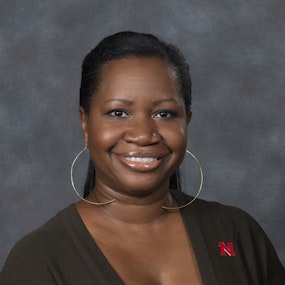BJP NYC 02: A Brief History of American Gynecology with Dr. Deirdre Cooper Owens
Season 1 Episode 2 features an interview with professor Dr. Deirdre Cooper Owens. We discuss a brief history of American gynecology and we reflect on what this history means in present day gynecological care, including her own experiences of medical racism.
But before we jump into this week's episode, we take a moment of silence for Sha-Asia Washington - a 26 year old Black woman who died during childbirth in early July at Woodhull Hospital in Brooklyn. Say her name. Learn her story. Here is the gofundme page to support her newborn and her family.
Deirdre Cooper Owens Bio:
Deirdre Cooper Owens is the Linda and Charles Wilson Professor in the History of Medicine and Director of the Humanities in Medicine program at the University of Nebraska-Lincoln. She is an Organization of American Historians’ (OAH) Distinguished Lecturer and has won a number of prestigious honors for her scholarly and advocacy work. A popular public speaker, Dr. Cooper Owens has spoken widely across the U.S. and Europe. She has published articles, essays, book chapters, and think pieces on a number of issues that concern African American experiences. Her first book, Medical Bondage: Race, Gender and the Origins of American Gynecology (Univ. of Georgia Press, 2017) won the 2018 Darlene Clark Hine Book Award from the Organization of American Historians as the best book written in African American women’s and gender history. Professor Cooper Owens is also the Director of the Program in African American History at the Library Company of Philadelphia, the country’s oldest cultural institution. She is working on a second book project that examines mental illness during the era of United States slavery and is writing a popular biography of Harriet Tubman that examines her through the lens of disability.
References During the Episode:
- [Book] Medical Bondage: Race, Gender and the Origins of American Gynecology
- [Lecture] Dr. Deirdre Cooper Owens presenting on her book Medical Bondage at Carnegie Mellon University (2019)
- [Organization] East Harlem Preservation Society (Marina Ortiz, founder)
Questions to consider after the episode:
What are some examples of practices, behaviors and policies that are considered “normal” in healthcare that do not sit right with you? Consider how racist practices, behaviors and policies have become so rampant and routine that they are accepted as a normal part of American healthcare.
Hosted by Taja Lindley
Produced by Colored Girls Hustle
Music, Soundscape and Audio Engineering by Emma Alabaster
Support our work on Patreon or make a one-time payment via PayPal
For more information visit BirthJustice.nyc
This podcast is made possible, in part, by the Narrative Power Stipend - a grant funded by Forward Together for members of Echoing Ida.

Deirdre Cooper Owens
Author, Professor, Scholar, Historian
Deirdre Cooper Owens is the Linda and Charles Wilson Professor in the History of Medicine and Director of the Humanities in Medicine program at the University of Nebraska-Lincoln. She is an Organization of American Historians’ (OAH) Distinguished Lecturer and has won a number of prestigious honors for her scholarly and advocacy work. A popular public speaker, Dr. Cooper Owens has spoken widely across the U.S. and Europe. She has published articles, essays, book chapters, and think pieces on a number of issues that concern African American experiences. Her first book, Medical Bondage: Race, Gender and the Origins of American Gynecology (Univ. of Georgia Press, 2017) won the 2018 Darlene Clark Hine Book Award from the Organization of American Historians as the best book written in African American women’s and gender history. Professor Cooper Owens is also the Director of the Program in African American History at the Library Company of Philadelphia, the country’s oldest cultural institution. She is working on a second book project that examines mental illness during the era of United States slavery and is writing a popular biography of Harriet Tubman that examines her through the lens of disability.








